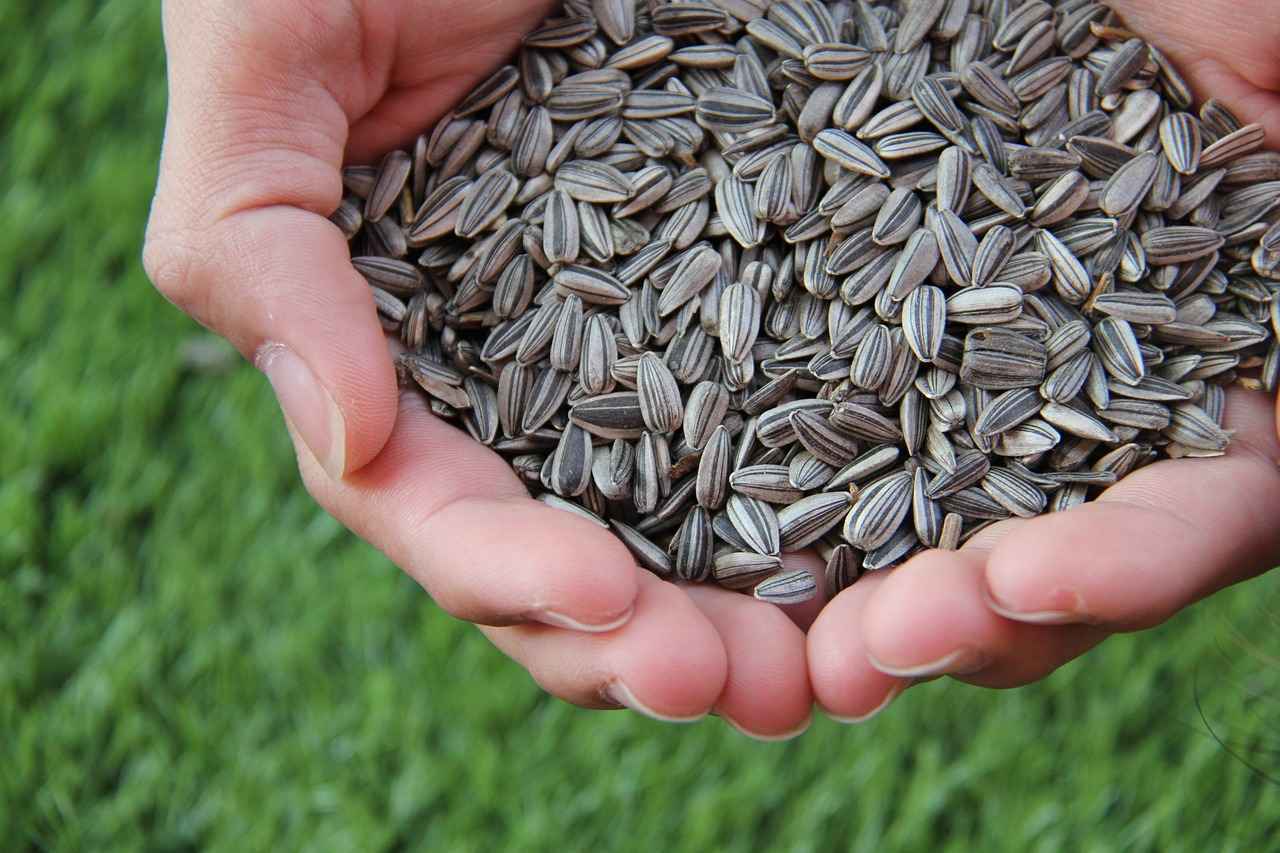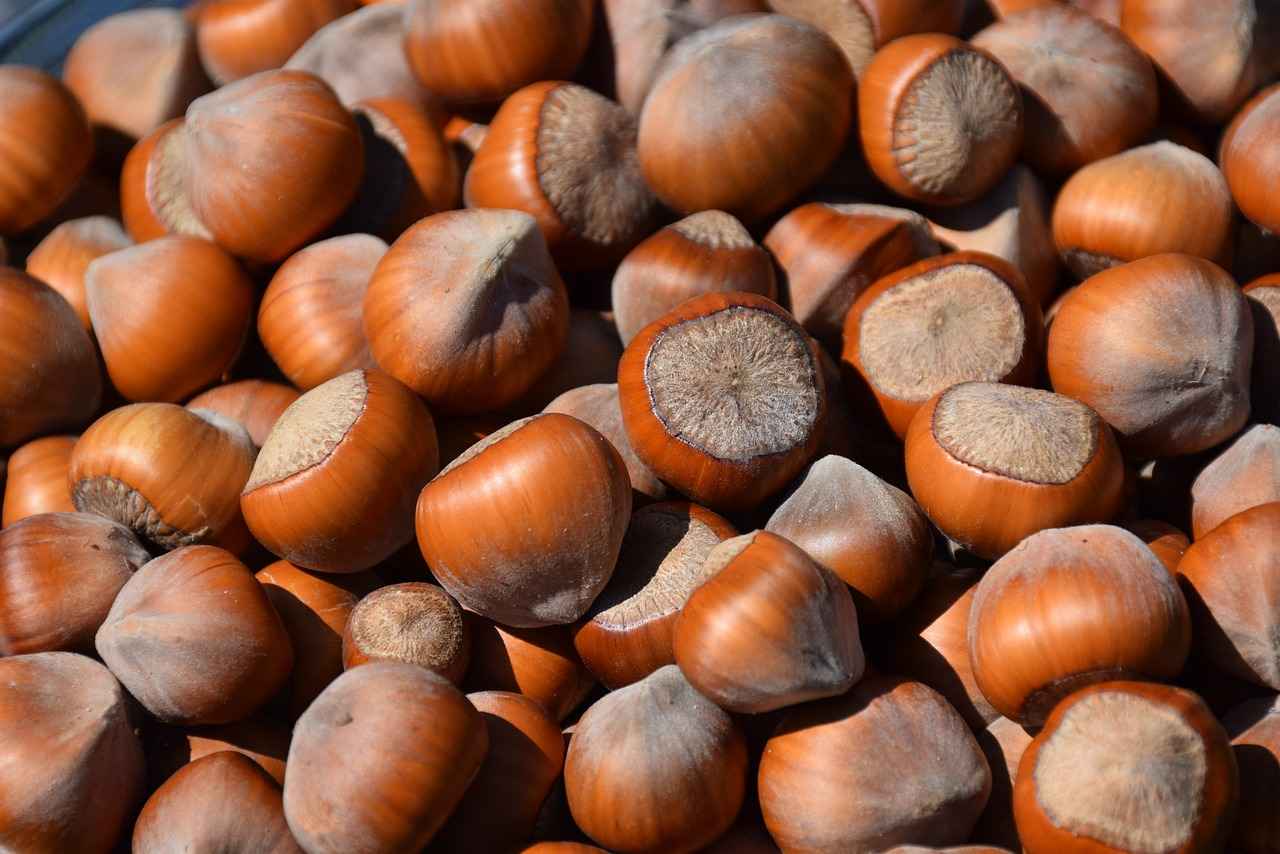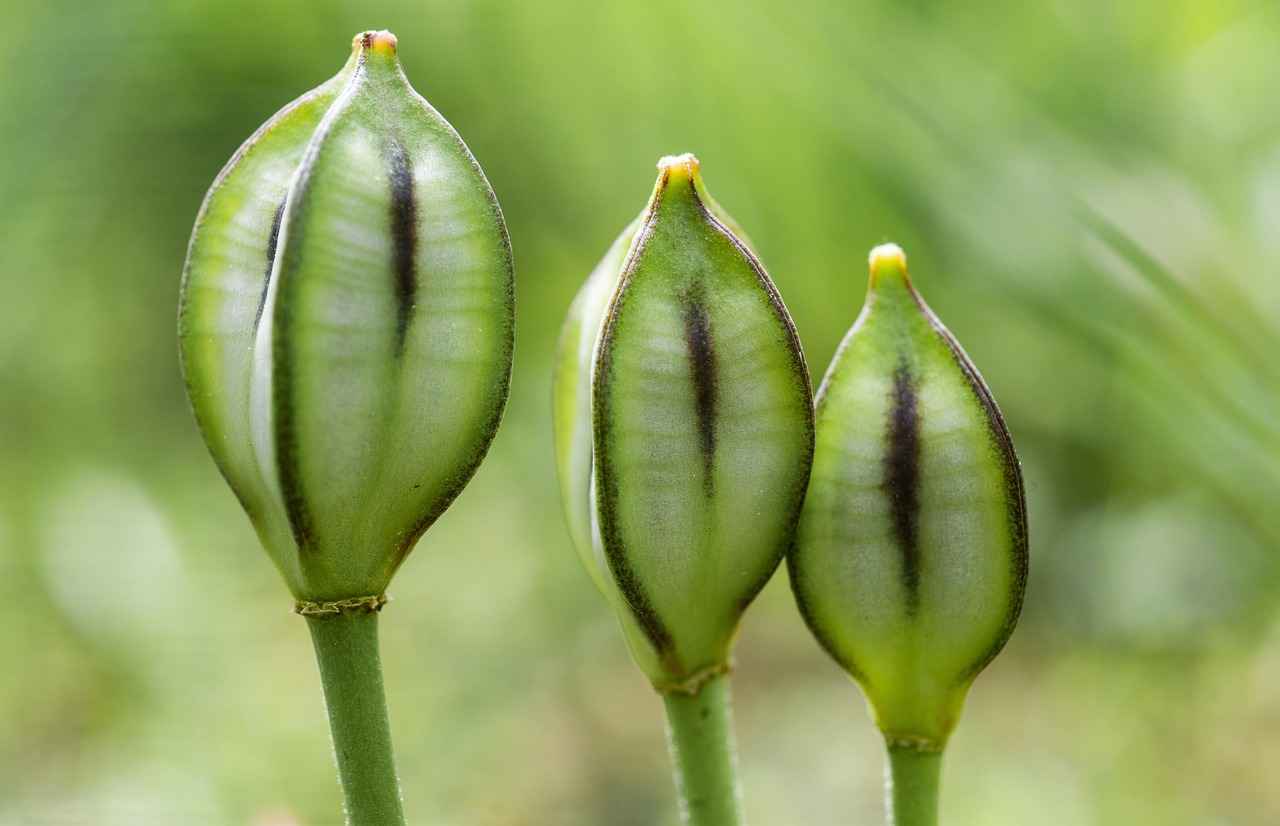Chia seeds have garnered significant attention in recent years, often hailed as a superfood due to their impressive nutritional profile. These tiny seeds, derived from the Salvia hispanica plant, are not only packed with essential nutrients but also offer a plethora of health benefits that can enhance overall well-being. In this article, we will delve into the nutritional value of chia seeds, explore their health advantages, and provide practical tips on how to incorporate them into your daily diet.
Chia seeds are small, oval-shaped seeds that can be either black or white. They are rich in nutrients and have been a staple in traditional diets for centuries. Their versatility makes them an excellent addition to various culinary creations, from smoothies to baked goods.
Chia seeds are celebrated as a superfood primarily due to their nutrient density. They are an excellent source of:
- Omega-3 fatty acids
- Dietary fiber
- Protein
- Vitamins and minerals
Chia seeds are one of the richest plant-based sources of omega-3 fatty acids, particularly alpha-linolenic acid (ALA). Omega-3s are vital for maintaining heart health and reducing inflammation.
Incorporating omega-3 fatty acids into your diet can lead to lower cholesterol levels and a reduced risk of heart disease. Consuming chia seeds regularly may enhance your cardiovascular health and overall vitality.
Chia seeds are an excellent source of dietary fiber, which plays a crucial role in digestive health. The fiber content helps regulate bowel movements, promotes gut health, and aids in weight management.
Yes, the high fiber content in chia seeds expands in the stomach, promoting a feeling of fullness. This can help curb your appetite and reduce overall calorie intake, making them an effective food for weight control.
Chia seeds are incredibly versatile and can be added to many dishes. Here are some popular ways to include them in your meals:
- Sprinkle them on salads
- Add to s smoothies
- Use in overnight oats
- Make chia pudding by soaking them in milk or a dairy-free alternative
Beyond omega-3s and fiber, chia seeds are also rich in essential nutrients such as calcium, magnesium, and various antioxidants. These nutrients contribute to bone health, muscle function, and overall wellness.
While chia seeds are generally safe for most individuals, consuming them in excessive amounts may lead to digestive discomfort. It is advisable to introduce them gradually into your diet to gauge tolerance.
To maintain their freshness and nutritional integrity, store chia seeds in a cool, dry place. Using an airtight container can help prevent moisture and oxidation, ensuring they remain a healthy addition to your meals.
In summary, chia seeds are a nutritional powerhouse that can provide numerous health benefits. Their versatility and ease of incorporation into various dishes make them an excellent choice for anyone looking to enhance their diet.

What Are Chia Seeds?
Chia seeds, derived from the Salvia hispanica plant, are tiny seeds that come in both black and white varieties. These seeds have garnered significant attention in the health and wellness community due to their impressive nutritional profile and versatility in culinary applications. With a rich history dating back to ancient civilizations, chia seeds have become a staple in modern diets, praised for their numerous health benefits.
Chia seeds are nutrient-dense superfoods that are packed with essential vitamins and minerals. They are particularly known for their high content of omega-3 fatty acids, fiber, and protein. These tiny seeds can absorb up to 12 times their weight in water, forming a gel-like consistency, which makes them an excellent addition to various dishes.
The term “superfood” is often used to describe foods that are exceptionally high in nutrients. Chia seeds fit this description perfectly. They are an excellent source of:
- Omega-3 Fatty Acids: Essential for heart health.
- Dietary Fiber: Promotes digestive health.
- Protein: Supports muscle growth and repair.
- Vitamins and Minerals: Including calcium, magnesium, and phosphorus.
One of the standout features of chia seeds is their ability to aid in weight management. The high fiber content in these seeds expands in the stomach, creating a feeling of fullness and reducing overall calorie intake. This can be particularly beneficial for those looking to maintain or lose weight.
Chia seeds are incredibly versatile and can be added to a variety of dishes. Here are some popular ways to incorporate them:
- Chia Pudding: Mix chia seeds with almond milk and let it sit overnight for a nutritious breakfast.
- Smoothies: Blend chia seeds into your favorite smoothie for an added nutrient boost.
- Baking: Add chia seeds to muffins, bread, or energy bars for extra texture and nutrition.
- Salads: Sprinkle them on salads for a crunchy topping.
Chia seeds are a powerhouse of essential nutrients. In addition to omega-3 fatty acids, they are rich in:
- Calcium: Important for bone health.
- Magnesium: Supports muscle and nerve function.
- Antioxidants: Help combat oxidative stress in the body.
While chia seeds are generally safe for most people, there are a few considerations to keep in mind. Some individuals may experience digestive discomfort if they consume large quantities without adequate hydration. It is advisable to start with small amounts and gradually increase intake.
To maintain their freshness and nutritional value, chia seeds should be stored in a cool, dry place. Using airtight containers can help protect them from moisture and oxidation, ensuring they remain a healthy addition to your diet.
In conclusion, chia seeds are not only a versatile ingredient but also a nutritional powerhouse. Their numerous health benefits and ease of incorporation into daily meals make them a fantastic choice for anyone looking to enhance their diet.

Why Are Chia Seeds Considered a Superfood?
Chia seeds, derived from the Salvia hispanica plant, have gained immense popularity in recent years, often being hailed as a superfood. Their remarkable nutritional profile contributes to their reputation, making them a favorite among health enthusiasts and nutritionists alike. But what exactly makes chia seeds so special? Let’s delve deeper into the reasons why they are considered a superfood.
Chia seeds are often labeled as a superfood due to their high nutrient density. Packed with essential fatty acids, fiber, protein, and a variety of vitamins and minerals, they play a significant role in promoting overall health. Here’s a closer look at their key nutritional components:
- Omega-3 Fatty Acids: Chia seeds are one of the richest plant sources of omega-3 fatty acids, particularly alpha-linolenic acid (ALA). These fatty acids are vital for heart health, reducing inflammation, and supporting brain function.
- Dietary Fiber: With a high fiber content, chia seeds aid in digestion, promote satiety, and can help regulate blood sugar levels.
- Proteins: Chia seeds contain a good amount of protein, making them an excellent addition to vegetarian and vegan diets.
- Vitamins and Minerals: They are rich in calcium, magnesium, phosphorus, and antioxidants, contributing to bone health and overall wellness.
The omega-3 fatty acids found in chia seeds are crucial for maintaining a healthy heart. Studies have shown that these fatty acids can help lower cholesterol levels and reduce the risk of heart disease. By incorporating chia seeds into your diet, you can take proactive steps toward improving your cardiovascular health.
Chia seeds are a fantastic food for those looking to manage their weight. Their high fiber content expands in the stomach, promoting a feeling of fullness and reducing overall calorie intake. This can lead to better portion control and fewer cravings. Additionally, the gel-like consistency they form when soaked in liquid can be a satisfying addition to meals.
One of the best aspects of chia seeds is their versatility. They can be easily added to various dishes, making it simple to boost your nutrient intake. Here are some practical ways to include chia seeds in your meals:
- Add them to smoothies for a nutritional boost.
- Sprinkle them on top of salads or yogurt.
- Use them as an egg substitute in baking (1 tablespoon of chia seeds mixed with 2.5 tablespoons of water equals one egg).
- Create chia pudding by soaking them in milk or a dairy-free alternative overnight.
Chia seeds are not just a source of fiber and omega-3s; they also provide a wealth of other nutrients:
- Calcium: Essential for bone health, chia seeds offer a substantial amount of calcium, making them a great addition to a calcium-rich diet.
- Magnesium: Important for muscle function and energy production, magnesium found in chia seeds supports overall health.
- Antioxidants: They contain antioxidants that help combat oxidative stress and inflammation, contributing to long-term health benefits.
While chia seeds are generally safe for most people, it’s important to consume them in moderation. Some individuals may experience digestive discomfort if they eat too many at once. It’s advisable to start with a small amount and gradually increase your intake. Additionally, those with allergies to similar seeds should consult a healthcare professional before incorporating chia seeds into their diet.
In summary, chia seeds are a nutritional powerhouse that can offer numerous health benefits. Their versatility in culinary applications makes them an easy and effective addition to any diet. By understanding their nutritional value and how to incorporate them into your meals, you can harness the benefits of this remarkable superfood.
High in Omega-3 Fatty Acids
Chia seeds are often hailed as a superfood due to their impressive nutritional profile, particularly their high content of omega-3 fatty acids. These tiny seeds are a remarkable source of alpha-linolenic acid (ALA), a type of plant-based omega-3 that plays a vital role in maintaining overall health. Understanding the significance of omega-3 fatty acids can help you appreciate the benefits of incorporating chia seeds into your daily diet.
Omega-3 fatty acids are essential fats that our bodies cannot produce on their own, making it crucial to obtain them through diet. They are known for their numerous health benefits, including:
- Heart Health: Omega-3s help lower triglyceride levels, reduce blood pressure, and decrease the risk of heart disease.
- Anti-Inflammatory Properties: They play a significant role in reducing inflammation, which is linked to various chronic diseases.
- Brain Function: Omega-3s are essential for brain health, supporting cognitive function and potentially protecting against neurodegenerative disorders.
While fish and fish oils are commonly known sources of omega-3s, chia seeds provide a plant-based alternative that is suitable for vegetarians and vegans. In fact, just one ounce (28 grams) of chia seeds contains approximately 5 grams of ALA, making them one of the richest plant sources available. This makes chia seeds an excellent choice for those looking to boost their omega-3 intake without consuming animal products.
Adding chia seeds to your diet is simple and versatile. Here are some practical ways to enjoy them:
- Chia Pudding: Combine chia seeds with your favorite milk (dairy or plant-based) and let them soak overnight for a nutritious breakfast.
- Smoothies: Blend chia seeds into your smoothies for an added nutritional boost.
- Baking: Substitute chia seeds for eggs in baking recipes by mixing them with water to create a gel-like consistency.
While chia seeds are generally safe for most people, it’s essential to consume them in moderation. Some individuals may experience digestive discomfort if they consume large quantities without adequate hydration. To avoid this, it’s advisable to start with a small amount and gradually increase your intake.
Incorporating chia seeds into your diet can significantly enhance your omega-3 fatty acid intake. Their numerous health benefits, coupled with their versatility in meals, make them an invaluable addition to any diet. Whether you are looking to improve heart health, reduce inflammation, or support brain function, chia seeds can play a crucial role in achieving your health goals.
Benefits of Omega-3 for Heart Health
When it comes to maintaining optimal heart health, omega-3 fatty acids play a crucial role. Research has consistently shown that these essential fats can significantly lower cholesterol levels and reduce the risk of heart disease. Incorporating sources of omega-3 into your diet, such as chia seeds, can have profound benefits for your cardiovascular system.
Omega-3 fatty acids, particularly alpha-linolenic acid (ALA) High levels of LDL (low-density lipoprotein) cholesterol, often referred to as “bad” cholesterol, are associated with an increased risk of cardiovascular disease. Omega-3 fatty acids can help to lower LDL cholesterol while increasing levels of HDL (high-density lipoprotein), or “good” cholesterol. This balance is vital for reducing the risk of heart attacks and strokes. Chia seeds are an excellent plant-based source of omega-3s, making them a fantastic addition to any heart-healthy diet. Just two tablespoons of chia seeds provide about 5 grams of ALA, which can help meet your daily omega-3 requirements. Here are some easy ways to incorporate chia seeds into your daily meals: Beyond cholesterol management, omega-3 fatty acids have been linked to lower blood pressure and improved arterial function. They can help reduce the risk of heart arrhythmias, which are irregular heartbeats that can lead to serious complications. Regular consumption of omega-3-rich foods like chia seeds can thus play a significant role in heart disease prevention. Numerous studies have demonstrated the positive effects of omega-3 fatty acids on heart health. For example, a study published in the Journal of the American College of Cardiology found that individuals with higher omega-3 levels had a significantly lower risk of heart disease. This evidence supports the idea that incorporating omega-3 sources like chia seeds into your diet can be an effective strategy for maintaining cardiovascular health. While omega-3 fatty acids are beneficial, it is important to consume them in moderation. Overconsumption of chia seeds can lead to digestive discomfort due to their high fiber content. It is advisable to start with small amounts and gradually increase your intake. Additionally, individuals on blood-thinning medications should consult their healthcare provider before significantly increasing their omega-3 intake. In summary, the incorporation of chia seeds into your diet can provide numerous heart health benefits, primarily through their high omega-3 fatty acid content. By lowering cholesterol levels and reducing the risk of heart disease, chia seeds can be a simple yet powerful addition to your nutritional regimen.Role of Omega-3 in Brain Function
Omega-3 fatty acids play a crucial role in maintaining optimal brain health. These essential fats are not produced by the body, which makes it vital to include them in our diet. Among the various sources of omega-3s, chia seeds stand out due to their high content of alpha-linolenic acid (ALA), a type of omega-3 that is particularly beneficial for cognitive function.
How Do Omega-3 Fatty Acids Support Cognitive Function?
- Omega-3 fatty acids are integral to the structure of brain cells, contributing to cell membrane fluidity, which is essential for effective communication between neurons.
- Research indicates that adequate omega-3 intake can enhance memory and learning abilities, making it a vital nutrient for individuals of all ages.
- These fatty acids also support the production of neuroprotective compounds that help shield the brain from oxidative stress.
Can Omega-3s Reduce the Risk of Neurodegenerative Diseases?
Emerging evidence suggests that omega-3 fatty acids may play a protective role against neurodegenerative diseases such as Alzheimer’s and Parkinson’s. Studies have shown that:
- Individuals with higher omega-3 levels in their blood have a lower risk of developing Alzheimer’s disease.
- Regular consumption of omega-3-rich foods, like chia seeds, may help slow cognitive decline in older adults.
How Do Chia Seeds Fit into a Brain-Boosting Diet?
Incorporating chia seeds into your daily meals can be an effective way to boost your omega-3 intake. Here are some practical ways to enjoy chia seeds:
- Add them to smoothies for a nutritious boost.
- Sprinkle them on yogurt or oatmeal for added texture and health benefits.
- Use chia seeds to make puddings or energy bars.
What Other Nutritional Benefits Do Chia Seeds Offer?
In addition to being a rich source of omega-3s, chia seeds are also packed with fiber, protein, and various vitamins and minerals. These nutrients contribute to overall health and wellness:
- High in dietary fiber, chia seeds promote digestive health and help maintain a healthy weight.
- They are a good source of plant-based protein, making them an excellent addition for vegetarians and vegans.
- Chia seeds are rich in antioxidants, which help combat oxidative stress and inflammation.
Conclusion: Why You Should Consider Chia Seeds for Brain Health
In summary, omega-3 fatty acids, particularly from chia seeds, are essential for maintaining brain health and function. By incorporating these tiny seeds into your diet, you can support cognitive function, potentially reduce the risk of neurodegenerative diseases, and enjoy a variety of other health benefits. With their versatility and nutrient density, chia seeds are indeed a superfood worth including in your meals.
Rich in Dietary Fiber
Chia seeds are not only a trendy superfood but also a nutritional powerhouse that offers a myriad of health benefits. One of their standout features is their exceptionally high content of dietary fiber. This essential nutrient plays a crucial role in maintaining optimal digestive health and overall well-being.
Fiber is vital for the digestive system, as it aids in the proper functioning of the intestines. It helps to regulate bowel movements, ensuring that waste is expelled efficiently. The soluble fiber found in chia seeds absorbs water, forming a gel-like substance that can help to soften stool and prevent constipation.
The high fiber content in chia seeds can also be a game changer for those looking to manage their weight. When chia seeds are consumed, they expand in the stomach, promoting a feeling of satiation. This natural appetite suppressant can lead to reduced calorie intake, making it easier to stick to a healthy diet.
- Improved Gut Health: Fiber acts as a prebiotic, feeding the beneficial bacteria in the gut. This can enhance overall gut microbiome health, which is linked to improved immunity and mood.
- Blood Sugar Regulation: The gel-like consistency of soluble fiber can slow down the absorption of sugar, helping to stabilize blood sugar levels and prevent spikes.
- Heart Health: A diet rich in fiber can lower cholesterol levels and reduce the risk of heart disease, making chia seeds a heart-healthy addition to your meals.
Integrating chia seeds into your diet is simple and versatile. Here are some practical ideas:
- Chia Pudding: Combine chia seeds with your choice of milk or a dairy-free alternative, let them soak overnight, and enjoy a nutritious breakfast or snack.
- Smoothies: Add a tablespoon of chia seeds to your favorite smoothie for an extra boost of fiber and nutrients.
- Baking: Incorporate chia seeds into muffins, bread, or energy bars for added texture and health benefits.
- Salads: Sprinkle chia seeds on salads for a crunchy topping that enhances both flavor and nutrition.
The recommended daily intake of fiber is about 25 grams for women and 38 grams for men. Including chia seeds in your diet can help you achieve these goals easily, as just two tablespoons of chia seeds provide around 10 grams of fiber.
While fiber is essential for health, it’s important to increase your intake gradually. A sudden increase in fiber consumption can lead to digestive discomfort, bloating, or gas. Always ensure you drink plenty of water to help fiber do its job effectively.
In summary, chia seeds are an incredible source of dietary fiber that can significantly enhance your digestive health and aid in weight management. Their versatility allows for easy incorporation into various meals, making them an ideal choice for anyone looking to boost their nutrient intake.

How Do Chia Seeds Aid in Weight Management?
Chia seeds have gained immense popularity in the health and wellness community, particularly for their role in weight management. These tiny seeds are not only nutrient-dense but also possess unique properties that can assist individuals in their journey towards achieving and maintaining a healthy weight. Understanding how chia seeds work in this context can empower you to make informed dietary choices.
The fiber in chia seeds plays a crucial role in promoting a sense of fullness and reducing hunger. When chia seeds are consumed, they can absorb a significant amount of water—up to 12 times their weight. This expansion in the stomach leads to a feeling of satiety, which can help curb cravings and prevent overeating. As a result, incorporating chia seeds into meals may lead to a reduction in overall calorie intake.
- High Fiber Content: Chia seeds are packed with dietary fiber, containing about 10 grams per ounce. This high fiber content not only aids digestion but also enhances feelings of fullness, making it easier to control portion sizes.
- Low in Calories: With only about 138 calories per ounce, chia seeds are a low-calorie food option. This means you can add them to your diet without significantly increasing your caloric intake.
- Rich in Nutrients: Chia seeds are a great source of essential nutrients, including protein, omega-3 fatty acids, and various vitamins and minerals. These nutrients can help support overall health while promoting weight management.
One of the most significant benefits of chia seeds is their ability to promote satiety. By incorporating chia seeds into meals or snacks, you may find that you are less likely to reach for unhealthy snacks between meals. This can be particularly beneficial for those trying to manage their weight, as reducing snacking can lead to lower calorie consumption throughout the day.
Adding chia seeds to your diet is simple and versatile. Here are a few practical ways to include them:
- Chia Pudding: Mix chia seeds with milk or a dairy-free alternative and let them sit overnight for a delicious breakfast or snack.
- Smoothies: Blend chia seeds into your favorite smoothie for an added nutrient boost.
- Salads: Sprinkle chia seeds on top of salads for added crunch and nutrition.
In addition to aiding in immediate weight management, regular consumption of chia seeds can contribute to long-term health benefits. The fiber in chia seeds can help maintain healthy digestion, which is essential for weight management. Furthermore, the nutrients found in chia seeds can support overall wellness, making it easier to sustain a healthy lifestyle.
In conclusion, chia seeds are a powerful ally in weight management. Their ability to expand in the stomach, combined with their high fiber and low-calorie content, makes them an ideal addition to any diet. By incorporating chia seeds into your meals, you can enhance feelings of fullness, reduce snacking, and support your overall health.
Satiety and Digestive Health
are critical components of overall well-being, and chia seeds play a significant role in enhancing both. These tiny seeds are not just a trendy health food; they are packed with nutrients that can help manage hunger and support digestive function.
One of the most remarkable features of chia seeds is their ability to absorb water and expand in the stomach. When consumed, they can swell up to 12 times their original size, creating a gel-like substance. This property is crucial for promoting feelings of fullness. As a result, incorporating chia seeds into meals can lead to reduced snacking and better portion control throughout the day.
Furthermore, the high fiber content of chia seeds contributes significantly to digestive health. With approximately 10 grams of fiber per ounce, they are an excellent source of both soluble and insoluble fiber. Soluble fiber helps to slow digestion, which allows for a more gradual release of energy and helps keep blood sugar levels stable. Insoluble fiber, on the other hand, adds bulk to the stool, promoting regular bowel movements and preventing constipation.
- Enhanced Satiety: By increasing the feeling of fullness, chia seeds can help you eat less during meals and reduce the urge to snack.
- Improved Digestive Function: The fiber in chia seeds supports a healthy gut by promoting regular bowel movements and preventing digestive issues.
- Blood Sugar Regulation: The gel-like texture of chia seeds slows the absorption of sugars into the bloodstream, helping to maintain stable energy levels.
In addition to their physical effects, chia seeds can also contribute to mental well-being. When you feel satisfied after a meal, you are less likely to experience cravings or the emotional stress associated with hunger. This can lead to a more positive relationship with food and improved eating habits over time.
To incorporate chia seeds into your diet, consider adding them to smoothies, oatmeal, or yogurt. You can also use them to make a nutritious chia pudding by soaking them in your choice of milk or plant-based alternatives. This not only enhances the texture of your meals but also boosts their nutritional value.
However, it’s important to consume chia seeds in moderation. While they are beneficial, excessive intake can lead to digestive discomfort for some individuals. Start with a small amount, such as one tablespoon, and gradually increase your consumption as your body adjusts.
In conclusion, chia seeds are a powerful ally in promoting satiety and supporting digestive health. Their unique properties make them a versatile addition to any diet, helping you manage hunger and maintain a healthy gut. By integrating chia seeds into your meals, you can enjoy their numerous benefits while enhancing your overall health.
How to Incorporate Chia Seeds into Your Diet?
Chia seeds are not only nutritious but also incredibly versatile, making them an excellent addition to a variety of dishes. Their ability to absorb liquid and form a gel-like consistency allows for creative culinary uses, enhancing both texture and nutrition.
- Sprinkle on Salads: Chia seeds can be sprinkled on top of salads to add a delightful crunch and boost the nutritional value. Their nutty flavor complements various dressings and ingredients.
- Blend into Smoothies: For a nutritious smoothie, add a tablespoon of chia seeds. They blend well and help thicken the mixture, providing a satisfying texture while increasing fiber and omega-3 content.
- Make Chia Pudding: Combine chia seeds with your choice of milk (dairy or plant-based) and let them soak overnight. The result is a creamy, nutrient-dense pudding that can be flavored with fruits, honey, or vanilla.
- Incorporate into Baked Goods: Chia seeds can be added to muffins, bread, and pancakes. They can replace eggs in vegan recipes when mixed with water, serving as a binding agent.
- Add to Yogurt: Mix chia seeds into yogurt for a nutritious breakfast or snack. This combination adds texture and boosts protein and fiber content.
Absolutely! Chia seeds can enhance savory dishes as well. Consider the following:
- Thicken Soups and Sauces: Add chia seeds to soups or sauces to increase thickness and nutrition without altering the flavor.
- Chia Seed Crackers: Combine chia seeds with whole grain flour, water, and seasonings to create homemade crackers, which are a healthy snack option.
Yes, there are countless recipes that highlight chia seeds:
- Chia Fresca: A refreshing drink made by mixing chia seeds with water and a splash of lemon or lime juice. This hydrating beverage is great for hot days.
- Energy Bites: Combine chia seeds with oats, nut butter, and honey to create no-bake energy bites, perfect for a quick snack.
To fully enjoy the health benefits of chia seeds, it’s recommended to:
- Soak Before Consuming: Soaking chia seeds in water or milk allows them to expand and become easier to digest, making nutrients more bioavailable.
- Mix with Other Superfoods: Combine chia seeds with other nutrient-rich foods like berries, nuts, and leafy greens to create a powerhouse meal.
Incorporating chia seeds into your diet can be both easy and enjoyable. With their wide range of uses, they can enhance both the nutritional profile and flavor of your meals. Whether you are adding them to breakfast, lunch, or dinner, chia seeds offer a simple way to elevate your culinary creations.

What Nutrients Are Found in Chia Seeds?
Chia seeds are often hailed as a superfood due to their impressive nutritional profile. These tiny seeds, derived from the Salvia hispanica plant, pack a powerful punch when it comes to essential nutrients. Let’s delve deeper into the specific nutrients found in chia seeds and understand their significance for our health.
Chia seeds are a powerhouse of nutrients, including calcium, magnesium, and antioxidants. These nutrients play crucial roles in promoting bone health, supporting muscle function, and enhancing overall wellness.
One of the standout features of chia seeds is their high calcium content. Just two tablespoons of chia seeds can provide about 18% of the daily recommended intake of calcium. This mineral is vital for maintaining strong bones and teeth. Adequate calcium intake helps prevent conditions such as osteoporosis, especially in older adults. Including chia seeds in your diet can be an effective way to boost your calcium levels, particularly for those who follow a plant-based diet.
Chia seeds are also rich in magnesium, with approximately 24% of the daily recommended intake found in a serving. Magnesium is essential for various bodily functions, including muscle contraction, nerve function, and energy production. It helps regulate muscle and nerve function, blood sugar levels, and blood pressure. Furthermore, magnesium plays a role in synthesizing protein and maintaining bone density.
The antioxidants present in chia seeds, such as quercetin and chlorogenic acid, help combat oxidative stress in the body. These compounds neutralize free radicals, which can damage cells and contribute to chronic diseases. By incorporating chia seeds into your diet, you can enhance your body’s defense against inflammation and promote overall health.
While discussing nutrients, it’s impossible to overlook the high levels of omega-3 fatty acids found in chia seeds. These essential fatty acids, particularly alpha-linolenic acid (ALA), are crucial for heart health. They help reduce inflammation, lower blood pressure, and decrease the risk of heart disease. Including chia seeds in your diet can be a simple yet effective way to improve cardiovascular health.
Chia seeds are an excellent source of dietary fiber, with about 11 grams of fiber per ounce. This high fiber content promotes digestive health by aiding in regular bowel movements and preventing constipation. Additionally, fiber contributes to feelings of satiety, making chia seeds a great addition to weight management plans.
In addition to calcium, magnesium, and antioxidants, chia seeds contain various vitamins and minerals, including phosphorus, zinc, and B vitamins. These nutrients support numerous bodily functions, from energy metabolism to immune function, making chia seeds a well-rounded addition to any diet.
Adding chia seeds to your meals is simple and versatile. You can sprinkle them on salads, blend them into smoothies, or use them to make chia pudding. Their mild flavor allows them to blend seamlessly into various dishes, enhancing both nutritional value and texture.
In conclusion, chia seeds are a nutrient-dense superfood that can significantly contribute to your overall health. By understanding the vital nutrients they offer, you can make informed choices about how to incorporate them into your daily diet for maximum benefits.
Calcium and Bone Health
Chia seeds are more than just a trendy health food; they are a nutritional powerhouse that can significantly contribute to your overall health, particularly when it comes to bone strength. One of the standout features of chia seeds is their impressive calcium content, making them an excellent choice for those looking to enhance their dietary intake of this essential mineral.
Calcium plays a crucial role in maintaining strong bones and teeth. It is the primary mineral found in bones, and adequate calcium intake is vital for preventing osteoporosis, a condition characterized by weak and brittle bones. As we age, our bones naturally lose density, which can lead to fractures and other serious health issues. Therefore, ensuring sufficient calcium intake is essential at all stages of life.
Chia seeds are an excellent source of calcium, with approximately 18% of the recommended daily intake found in just one ounce (28 grams). This makes them a fantastic addition to a calcium-rich diet. Unlike many dairy products, chia seeds are plant-based, making them suitable for vegans and those who are lactose intolerant.
| Food Source | Calcium Content (per 100g) |
|---|---|
| Chia Seeds | 631 mg |
| Milk | 120 mg |
| Yogurt | 110 mg |
| Broccoli | 47 mg |
As shown in the table above, chia seeds outshine many traditional calcium sources, making them a valuable addition to your meals.
Incorporating chia seeds into your diet is simple and versatile. Here are a few practical tips:
- Add to Smoothies: Blend chia seeds into your morning smoothie for a nutritious boost.
- Make Chia Pudding: Combine chia seeds with almond milk and let them sit overnight for a delicious pudding.
- Top Your Salads: Sprinkle chia seeds on salads for added crunch and nutrition.
- Mix into Baked Goods: Add chia seeds to muffins or bread for enhanced texture and health benefits.
While chia seeds are generally safe for most individuals, moderation is key. Consuming them in excessive amounts can lead to digestive discomfort due to their high fiber content. It is advisable to start with small servings and gradually increase your intake to see how your body responds.
In summary, chia seeds are a remarkable source of calcium that can play a significant role in maintaining strong bones and preventing osteoporosis. Their versatility allows for easy incorporation into various meals, making them a practical choice for those looking to boost their calcium intake. By adding chia seeds to your diet, you are not only enhancing your calcium consumption but also benefiting from their other nutritional properties, such as omega-3 fatty acids and antioxidants. Make chia seeds a staple in your kitchen to support your bone health and overall wellness.
Antioxidants and Their Benefits
Antioxidants play a crucial role in maintaining our health by protecting our bodies from oxidative stress and inflammation. These two factors are linked to numerous chronic diseases, including heart disease, diabetes, and cancer. Among the various sources of antioxidants, chia seeds stand out due to their impressive nutritional profile.
Antioxidants are molecules that neutralize free radicals—unstable compounds that can cause cellular damage. This damage can lead to oxidative stress, which is a significant contributor to aging and various health conditions. By consuming foods rich in antioxidants, such as chia seeds, we can help our bodies combat these harmful effects.
Chia seeds are packed with a variety of antioxidants, including quercetin, chlorogenic acid, and caffeic acid. These compounds not only help reduce inflammation but also support overall cellular health. The high antioxidant content in chia seeds makes them an excellent addition to a balanced diet.
- Combatting Inflammation: Chronic inflammation is a precursor to many diseases. The antioxidants in chia seeds can help reduce inflammation levels in the body, potentially lowering the risk of developing inflammatory-related diseases.
- Supporting Heart Health: By reducing oxidative stress, chia seeds can help improve cardiovascular health. Antioxidants play a role in lowering blood pressure and cholesterol levels, contributing to a healthier heart.
- Enhancing Skin Health: Antioxidants can protect the skin from damage caused by UV rays and pollution. Including chia seeds in your diet may help maintain skin elasticity and reduce signs of aging.
- Boosting Immune Function: Antioxidants support the immune system by neutralizing free radicals, allowing the body to function optimally and fight off infections more effectively.
To reap the benefits of antioxidants in chia seeds, consider the following methods of incorporation:
- Chia Pudding: Mix chia seeds with your favorite milk or yogurt, add fruits, and let it sit overnight for a nutritious breakfast.
- Smoothies: Blend chia seeds into your morning smoothie for an added nutritional boost.
- Baking: Add chia seeds to baked goods like muffins or bread for a healthy twist.
- Salads: Sprinkle chia seeds on salads or grain bowls for enhanced texture and nutrition.
While chia seeds are generally safe for most individuals, it’s essential to consume them in moderation. Some people may experience digestive discomfort if they eat large quantities without adequate hydration. Always start with a small amount and gradually increase your intake.
Incorporating chia seeds into your diet can significantly enhance your antioxidant intake, offering numerous health benefits. Their ability to combat oxidative stress and inflammation makes them a valuable addition to any health-conscious diet. By understanding the importance of antioxidants and how chia seeds contribute to overall wellness, you can take proactive steps toward better health.

Are There Any Risks or Side Effects?
Chia seeds are often celebrated for their numerous health benefits, but like any food, they come with certain considerations. Understanding the potential risks and side effects associated with chia seeds is essential for anyone looking to incorporate them into their diet.
While chia seeds are generally safe for most individuals, it is important to note that some people may experience digestive discomfort if they consume them in excessive amounts. This discomfort can manifest as bloating, gas, or even diarrhea. Therefore, it is advisable to introduce chia seeds gradually into your diet to allow your body to adjust.
The primary reason for digestive discomfort is the high fiber content in chia seeds. A single ounce (about 28 grams) of chia seeds contains approximately 11 grams of fiber, which is a significant amount. When consumed in large quantities, this fiber can absorb water and expand in the stomach, potentially leading to discomfort.
- Start Small: Begin with a teaspoon of chia seeds and gradually increase the amount over time.
- Hydrate: Always consume chia seeds with plenty of water to help them expand and aid digestion.
- Mix with Other Foods: Incorporate chia seeds into smoothies, yogurt, or oatmeal to help mitigate any digestive issues.
Although rare, some individuals may have allergies or sensitivities to chia seeds. Symptoms can include skin rashes, itching, or gastrointestinal issues. If you suspect an allergy, it is best to consult with a healthcare professional before consuming chia seeds.
Chia seeds are also high in omega-3 fatty acids, which are beneficial for heart health. However, those on blood-thinning medications should consult their doctor, as excessive omega-3 intake can increase bleeding risk. Additionally, individuals with certain gastrointestinal conditions, such as irritable bowel syndrome (IBS), should approach chia seeds cautiously due to their high fiber content.
To maintain the freshness and nutritional value of chia seeds, it is essential to store them correctly. Keep them in an airtight container in a cool, dry place, away from direct sunlight. Proper storage can prevent moisture absorption and oxidation, ensuring that the seeds retain their beneficial properties.
In summary, while chia seeds offer numerous health benefits, it is crucial to be aware of the potential risks and side effects. By introducing them gradually into your diet and taking necessary precautions, you can enjoy the many advantages of these tiny superfoods without compromising your digestive health.
Potential Allergies and Sensitivities
Chia seeds are celebrated for their numerous health benefits and nutritional value, but it is crucial to recognize that some individuals may experience allergies or sensitivities to them. Although these cases are relatively rare, being aware of potential reactions is essential for anyone considering adding chia seeds to their diet.
When trying chia seeds for the first time, it is advisable to monitor for any adverse reactions. Symptoms of an allergy may include:
- Skin Reactions: Hives, rashes, or eczema can occur in some individuals.
- Gastrointestinal Issues: Symptoms such as bloating, gas, or diarrhea may arise, particularly if consumed in large quantities.
- Respiratory Problems: In rare cases, allergies may lead to difficulty breathing or swelling of the throat.
If you have a history of allergies to other seeds or nuts, it is wise to approach chia seeds with caution. Start with a small amount to gauge your body’s response. If you notice any of the above symptoms, discontinue use and consult a healthcare professional.
Another aspect to consider is the potential for cross-reactivity. Individuals allergic to certain plants may find themselves sensitive to chia seeds as well. This phenomenon occurs when the proteins in chia seeds are similar to those in other allergenic plants, leading to an immune response. For instance, those with allergies to mustard seeds or sesame seeds might experience similar reactions to chia seeds.
Moreover, while chia seeds are generally safe for most people, they can cause digestive discomfort if consumed in excessive amounts. Their high fiber content can lead to bloating or constipation, especially if not accompanied by adequate hydration. It is recommended to gradually increase your intake and ensure you drink plenty of water to help your digestive system adjust.
For those concerned about allergies, it may be beneficial to consult with a healthcare provider or an allergist before incorporating chia seeds into your diet. They can perform tests to determine if you have any sensitivities or allergies to chia seeds or related foods.
In conclusion, while chia seeds offer a plethora of health benefits, it is essential to be mindful of potential allergies and sensitivities. By starting with small amounts and paying attention to your body’s reactions, you can safely enjoy the nutritional advantages of chia seeds without compromising your health.
How to Store Chia Seeds Properly?
Chia seeds have become increasingly popular due to their numerous health benefits and versatility in cooking. However, to fully enjoy these benefits, it is crucial to understand how to store chia seeds properly. This ensures that they maintain their freshness and nutritional value over time.
Chia seeds are packed with essential nutrients, including omega-3 fatty acids, fiber, and antioxidants. However, improper storage can lead to oxidation and loss of these valuable nutrients. Therefore, understanding the best practices for storing chia seeds is vital for maximizing their health benefits.
- Choose the Right Environment: Chia seeds should be stored in a cool and dry place. Exposure to heat and humidity can accelerate spoilage.
- Airtight Containers: Using airtight containers is essential to prevent moisture from entering. Glass jars or high-quality plastic containers with tight seals are ideal.
- Keep Away from Light: Light exposure can also contribute to the degradation of chia seeds. Storing them in a dark cabinet or pantry can help maintain their quality.
- Refrigeration: For long-term storage, consider placing chia seeds in the refrigerator. This can significantly extend their shelf life and preserve their nutritional content.
- Check Expiry Dates: Always pay attention to the expiry dates on packaging. Consuming expired chia seeds may not only diminish their nutritional benefits but could also lead to digestive discomfort.
When stored correctly, chia seeds can last for up to two years without losing their nutritional value. However, it is advisable to consume them within six months to one year for optimal freshness. Regularly checking the seeds for any signs of spoilage, such as an off smell or unusual texture, can help ensure that you are consuming quality seeds.
If chia seeds are exposed to moisture or heat, they may become moldy or develop an unpleasant odor. Additionally, the beneficial oils in the seeds can go rancid, leading to a bitter taste. This not only affects the flavor but also diminishes their health benefits. Therefore, adhering to proper storage guidelines is essential.
Yes, you can freeze chia seeds to prolong their shelf life. Freezing helps to maintain their nutritional integrity and prevents oxidation. When you want to use frozen chia seeds, simply take out the desired amount and allow them to thaw at room temperature before consumption.
Proper storage of chia seeds is fundamental to preserving their freshness and health benefits. By keeping them in a cool, dry place in airtight containers, you can enjoy their nutritional advantages for an extended period. Remember to monitor their condition and consume them within the recommended timeframe to reap the maximum benefits.

Conclusion: Why You Should Add Chia Seeds to Your Diet
In today’s health-conscious world, chia seeds have emerged as a popular superfood, celebrated for their impressive nutritional profile and health benefits. These tiny seeds, derived from the Salvia hispanica plant, are not only versatile but also packed with essential nutrients that can significantly enhance your overall well-being. This article explores the myriad reasons why you should consider incorporating chia seeds into your diet.
Chia seeds offer a plethora of health benefits that make them a worthy addition to any diet. Here are some key advantages:
- Heart Health: Rich in omega-3 fatty acids, chia seeds can help lower cholesterol levels and reduce the risk of heart disease.
- Digestive Health: Their high fiber content promotes regular bowel movements and aids in digestion.
- Weight Management: Chia seeds expand in your stomach, helping you feel full and satisfied, which may assist in weight control.
- Bone Health: Packed with calcium, magnesium, and phosphorus, chia seeds support strong bones and overall skeletal health.
- Antioxidant Properties: The antioxidants in chia seeds combat oxidative stress, contributing to better health.
Incorporating chia seeds into your daily meals is simple and convenient. Here are some practical ways to enjoy them:
- Chia Pudding: Mix chia seeds with your choice of milk or yogurt and let them soak overnight for a nutritious breakfast.
- Smoothies: Add a tablespoon of chia seeds to your smoothies for an extra nutrient boost.
- Salads: Sprinkle chia seeds on salads for added crunch and nutrition.
- Baking: Incorporate chia seeds into baked goods like muffins and bread for enhanced texture and health benefits.
While chia seeds are generally safe for most people, there are a few considerations to keep in mind:
- Digestive Discomfort: Consuming large amounts of chia seeds may lead to digestive issues. It’s advisable to start with small quantities and gradually increase your intake.
- Allergies: Although rare, some individuals may have allergies to chia seeds. Monitor your body’s response when trying them for the first time.
To maintain the freshness and nutritional value of chia seeds, store them in a cool, dry place. Using airtight containers can help prevent moisture and oxidation, ensuring that your seeds remain potent and flavorful.
Incorporating chia seeds into your diet can lead to a multitude of health benefits, from improved heart health to better digestive function. Their versatility makes them an easy addition to various meals, allowing you to enjoy their nutritional advantages without compromising on taste. By understanding the benefits, methods of incorporation, and storage tips, you can make the most of this remarkable superfood.
Frequently Asked Questions
- What are the health benefits of chia seeds?
Chia seeds are loaded with nutrients! They are rich in omega-3 fatty acids, fiber, and protein, which contribute to heart health, improved digestion, and weight management. Plus, they contain essential vitamins and minerals that support overall wellness.
- How do I incorporate chia seeds into my meals?
You can sprinkle chia seeds on salads, blend them into smoothies, or even make a delicious chia pudding! They’re super versatile, so feel free to get creative and add them to your favorite recipes.
- Are there any side effects of consuming chia seeds?
While chia seeds are generally safe, some people may experience digestive discomfort if they eat too many at once. It’s best to start with a small amount and gradually increase your intake to avoid any issues.
- How should I store chia seeds?
To keep your chia seeds fresh, store them in a cool, dry place in an airtight container. This helps prevent moisture and oxidation, ensuring they remain nutritious for longer.
- Can chia seeds help with weight loss?
Absolutely! The high fiber content in chia seeds expands in your stomach, helping you feel full and satisfied, which can reduce overall calorie intake and assist in weight management.












